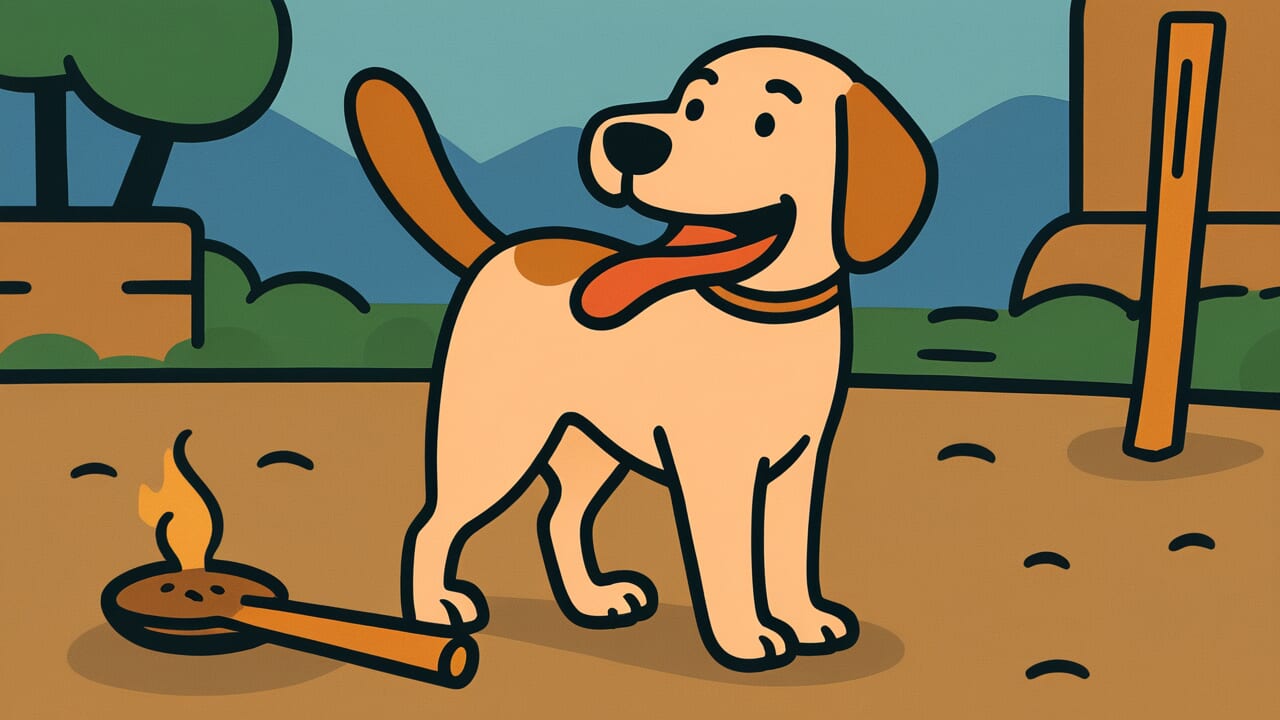How to Read “A starving dog fears no stick”
Uetaru inu wa bō wo osorezu
Meaning of “A starving dog fears no stick”
This proverb reveals a fundamental truth about human nature. When people face extreme hardship, they act without regard for danger.
Even threats that would normally stop them lose their power. This happens when someone reaches the edge of survival.
Just as a starving dog will leap at food despite the threat of being beaten, desperate people stop fearing laws, social punishment, or even physical harm.
This proverb doesn’t judge whether such actions are right or wrong. Instead, it calmly observes how humans behave when pushed to their limits.
People use this saying not to criticize the desperate, but to warn about the danger of pushing people too far.
We can act rationally only when our basic needs are met. Take away that security, and behavior becomes unpredictable.
This is an important lesson for anyone trying to maintain a stable society.
Origin and Etymology
The exact origin of this proverb is unclear, but its structure reveals interesting historical context.
The phrase “starving dog” has been used as a metaphor in Japan for centuries. Before the Edo period, dogs weren’t pets like today.
They lived semi-wild around human settlements. People regularly saw hungry dogs risk being beaten to grab food.
The phrase “fears no stick” is also significant. Sticks were the common tool people used to chase away dogs.
Normally, a dog would run when someone raised a stick. But extreme hunger could override even that learned fear.
This observation became the heart of the proverb.
This expression likely emerged during times when famine and poverty were common experiences.
People understood that extreme hardship changes human behavior too. They saw their own struggles reflected in how dogs acted.
This proverb shows a typical feature of Japanese sayings. They use animal behavior to explain human psychology.
Usage Examples
- When a company president facing bankruptcy resorts to borderline illegal methods, it’s a case of “A starving dog fears no stick”
- When someone whose welfare applications were repeatedly rejected finally turns to crime, they were truly in a state of “A starving dog fears no stick”
Universal Wisdom
This proverb speaks to a universal truth about human dignity and survival instinct.
We normally live by reason, morality, and social rules. But this is only possible when our basic survival is secure.
Humans are fundamentally programmed to prioritize staying alive. No amount of civilization or education can erase this basic instinct.
When survival is threatened, this instinct pushes aside all reason and surfaces. This might not be weakness but rather the strength of life itself.
This proverb has endured because it contains an important warning for society.
Don’t push people to the edge. Without guaranteeing minimum survival, social order cannot be maintained.
This lesson applies equally to ancient rulers and modern policymakers.
At the same time, this proverb encourages understanding toward those in hardship.
It teaches us not to dismiss crime or antisocial behavior as simply moral failure. We should look at the desperate circumstances behind such actions.
Anyone, when sufficiently cornered, might act in ways they never imagined. This is an unavoidable truth about human existence.
When AI Hears This
Why a starving dog fears no stick can be mathematically explained through prospect theory’s value function.
This theory shows that people judge things not by absolute states but by changes from a reference point.
Crucially, in the loss domain, the value function’s slope becomes dramatically flatter.
This means when you’ve already suffered major losses, additional losses cause less psychological pain.
Losing 10,000 yen from zero is painful. But for someone who’s already lost 1 million yen, another 10,000 yen matters relatively little.
For a starving dog, the current reference point is already “near death.” Being hit with a stick is an additional loss.
But since the situation is already nearly the worst possible, that fear diminishes.
Even more interesting is the finding that people become risk-seeking in the loss domain.
Normally, people prefer certain gains. But when facing losses, they gamble on risky reversals.
Revolutions happen when the middle class falls. Startups beat established companies when they have nothing to lose.
Crime rates rise when economic despair spreads. All these follow the same mechanism.
When the reference point collapses, human decision-making systems abandon rational calculation and tilt toward extreme action.
This formula reveals a fact: despair is the most unpredictable and dangerous driving force.
Lessons for Today
This proverb teaches modern people the importance of imagination in understanding human behavior.
When we see crime or antisocial acts in the news, we often think “why would anyone do that?”
But imagining how cornered that person was changes what we see.
On a personal level, it teaches the importance of reaching out before we or others reach breaking point.
Ignoring someone in trouble might push them into a state where they “fear no stick.”
Small acts of support or words of encouragement might save someone’s life.
For society as a whole, it reminds us why safety nets are necessary.
Welfare, unemployment insurance, and education support aren’t just charity. They’re investments in social stability.
A society where people have hope becomes safer for everyone.
This proverb quietly but powerfully teaches that compassion and practical benefit align.



Comments